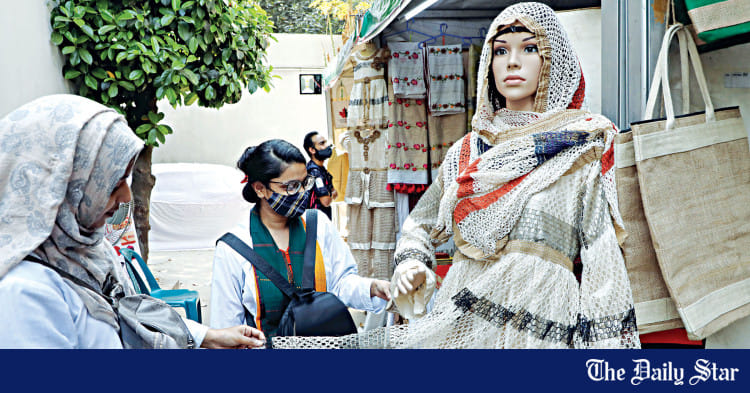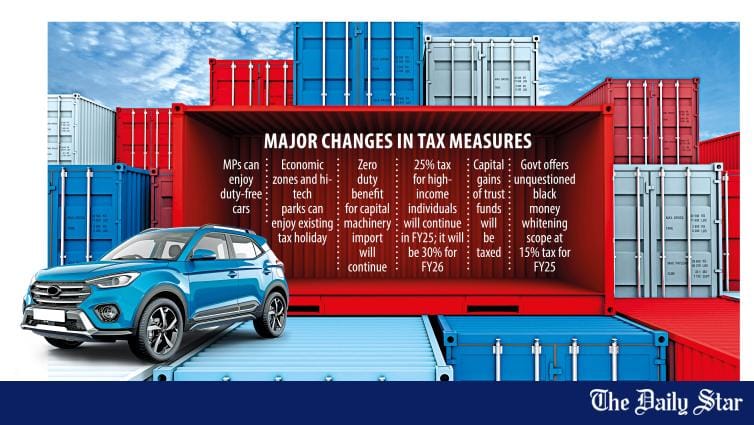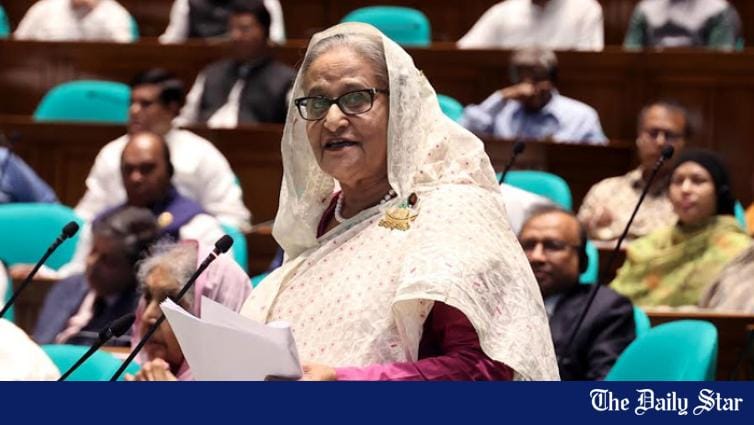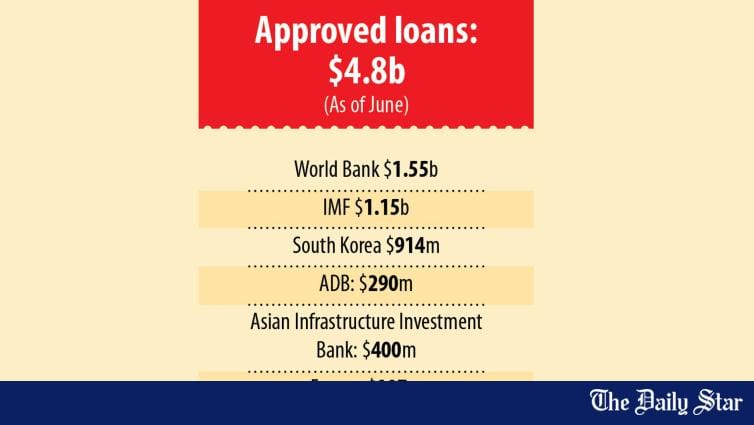Saif
Senior Member
- Joined
- Jan 24, 2024
- Messages
- 16,880
- Likes
- 8,153
- Nation

- Residence

- Axis Group


LDC exit: A win for the nation, but a loss for trade
Bangladesh’s graduation from the group of least-developed countries (LDCs) to a developing nation in 2026 has become a point of national pride, underlining the substantial economic strides that the country has made.
LDC exit: A win for the nation, but a loss for trade
Experts suggest more homework to offset potential losses

Bangladesh losing zero-duty benefits post-LDC graduation
Bangladesh's graduation from the group of least-developed countries (LDCs) to a developing nation in 2026 has become a point of national pride, underlining the substantial economic strides that the country has made.
Not only does the accomplishment signify that the nation has improved income levels, reduced poverty, and raised living standards, but it also represents improvement in social conditions.
Bangladesh was included in the LDC group in 1975 by the United Nations, with the country languishing from the havoc wreaked by the Pakistani army during the Liberation War of 1971.
The UN Committee on Development Policy, the body which assesses the graduation process, has confirmed Bangladesh will graduate in November 2026. It examined the country's economic performance across three criteria: gross national income (GNI) per capita, human assets index (HAI), and economic and environmental vulnerability index (EVI).
Bangladesh has outperformed all previously graduated LDCs in the three criteria in all reviews.
Although the exit will brighten the image and prestige of the country, it will also bring serious challenges for exports, especially due to the erosion of trade benefits.

BENEFITS FOR LDCs
Since becoming an LDC, Bangladesh has enjoyed zero-duty benefits on exports to different countries, including developed and developing nations. It receives preferential treatment in 38 countries. Of the total merchandise shipped from Bangladesh annually, 73 percent is LDC-induced.
It also qualifies for trade preference on shipments to its largest destination, the European Union, under its generous "Everything but Arms (EBA)" scheme. It has helped Bangladesh turn into the second-largest garment supplier to the bloc after China.
Except for the US, all other developing and developed countries have granted Bangladesh zero-duty benefits under the declaration of the Hong Kong Ministerial of the World Trade Organisation (WTO), where global leaders agreed to implement the Doha Development Agenda by approving duty exemptions for all goods originating in LDCs.
The US government did not comply with the declaration and had instead allowed duty-free access for 97 percent of the products of the LDCs. Unfortunately, garment items, the mainstay of the export basket of Bangladesh, were included in the three percent that was subject to duties.
As a result, Bangladeshi garment exporters have always had to face a 15.62 percent duty on apparel exports to the markets in the world's largest economy.
Washington suspended Bangladesh from the generalised system of preference (GSP) in June 2013 for its failure to meet statutory eligibility requirements related to worker rights. The US GSP programme for all countries expired in December 2020 and the US Congress is yet to take up a new scheme. As a result, it has no duty benefit for LDCs currently.
Since gaining the LDC status, Bangladesh has been performing strongly in merchandise exports, especially in the shipment of apparel. Now, the country is the second-largest garment exporter worldwide, accounting for a 7.9 percent share of the global market.
Bangladesh is also the biggest beneficiary of the duty privileges afforded to LDCs, with the country alone availing more than 67 percent of the benefits extended to the group.
Furthermore, Bangladesh enjoys trade benefits on a broader scale. For instance, it gets a 12 percent preferential margin on its sales to European countries, which provide a substantial price advantage.
WHAT AFTER LDC GRADUATION
Since Bangladesh will lose preferential market access, the loss of exports may primarily be worth $7.77 billion annually if merchandise exports of the fiscal year 2022-23 are considered.
"LDC graduation will have the greatest impact on the exports of Bangladesh," said the WTO in a study report. Bangladesh is projected to lose 14.28 percent of its exports.
Once the country leaves the bloc, local exporters may face an 11.5 percent duty in major export destinations in the EU if the GSP Plus facility can't be secured.
This duty will not only be imposed on exports to the EU but also to some emerging markets. For example, duties will be levied at 20 percent in India and 18 percent in Japan.
Apart from the impact of direct tariffs, the industrial sector, especially the garments industry, will face consequences. This may be reflected in workers losing their jobs as exports fall and exporters lose their competitiveness in global trade.
IS THERE ANY SILVER LINING?
The graduation will act as a source of pride and serve as recognition for the nation as it becomes a member of the developing countries.
On the positive side, Bangladesh may witness a higher inflow of foreign direct investments after it becomes a developing nation because the change in the status will brighten the country's image. There will also be enhanced access to finance because of better credit ratings.
But the real question is whether the country will be eligible for the same trade facilities once it exits the group and whether there is any possibility of retaining the benefits in the years after 2026. The straightforward answer is no, but two important developments need to be considered.
First, the EU will grant a three-year grace period to graduating LDCs, meaning Bangladesh will be allowed duty-free access up to 2029.
Second, at the 13th WTO Ministerial Conference in Abu Dhabi this year, it was decided that graduating LDCs would be given the facilities for three more years. In this case, graduating countries will have to negotiate with trading partners and it will not be flat like it is today.
Mustafizur Rahman, a distinguished fellow of the Centre for Policy Dialogue (CPD), said the think-tank's study found that around 14 percent of Bangladesh's exports will be affected following graduation. "Moreover, Bangladesh will have to rationalise tariffs for other countries by withdrawing regulatory and customs duties."
In the absence of the duty-free export facility, Bangladesh will have to sign trade pacts with other countries in order to keep the preferential market access. However, such deals will come at a cost. For example, if free trade agreements (FTAs) are signed, the country may lose a major source of revenue in the form of import duties.
The country's income from import duties stood at Tk 96,259 crore in the last financial year, accounting for 29 percent of the total revenue collections.
Experts suggest the government make the most of the trade benefits of the LDCs and continue negotiations with major partners to sign FTAs, Comprehensive Economic Trade Agreements (CEPAs), Economic Partnership Agreements (EPAs), and Preferential Trade Agreements (PTAs).
If a graduating nation can negotiate efficiently, it may enjoy trade benefits for more than three years after the transition. For example, China has retained benefits for Samoa although the latter graduated in 2014. Therefore, the extent to which preferences can be availed will depend on the negotiation capacity of Bangladesh.
The EU and some countries such as Canada, Australia and the UK have already agreed to continue LDC-linked benefits for Bangladesh for three more years after 2026.

HOW TO REMAIN COMPETITIVE
According to experts, if Bangladesh can take proper steps, the country will be able to offset the financial losses from graduation. "The government has formed seven sub-committees on LDC graduation, and they should work efficiently so that the country can ensure a smooth transition," Prof Rahman added.
Once the country graduates, it will lose foreign assistance. So, the government has initiated measures and is bringing in changes to the budget and policies.
The principal secretary of the Prime Minister's Office has constituted a committee and seven sub-committees involving private sector stakeholders and researchers to identify potential challenges in the post-LDC era and carry out reforms in order to insulate the economy.
In order to tackle challenges stemming from the loss of preferential market access, Bangladesh is considering penning agreements with 13 major trading partners, including China, India, Japan, and the US. In December 2020, Bangladesh signed an PTA with Bhutan, its first bilateral trade deal.
The government has been active in formulating a nine-point action plan to be implemented by 2026 to continue trade benefits in the EU by availing GSP Plus facility.
Export-oriented industries are expected to take a beating owing to graduation since developing and developed nations are not allowed to provide direct cash subsidies on export receipts as per WTO rules.
Therefore, the government aims to provide subsidies in different forms to ensure competitiveness and revenue inflows from international markets.
The government plans to remove and reduce import and supplementary duties on 282 products in 2024-25 in order to prepare the nation for graduation. However, experts have termed the measures inadequate.
Experts suggest more homework to offset potential losses
Bangladesh losing zero-duty benefits post-LDC graduation
Bangladesh's graduation from the group of least-developed countries (LDCs) to a developing nation in 2026 has become a point of national pride, underlining the substantial economic strides that the country has made.
Not only does the accomplishment signify that the nation has improved income levels, reduced poverty, and raised living standards, but it also represents improvement in social conditions.
Bangladesh was included in the LDC group in 1975 by the United Nations, with the country languishing from the havoc wreaked by the Pakistani army during the Liberation War of 1971.
The UN Committee on Development Policy, the body which assesses the graduation process, has confirmed Bangladesh will graduate in November 2026. It examined the country's economic performance across three criteria: gross national income (GNI) per capita, human assets index (HAI), and economic and environmental vulnerability index (EVI).
Bangladesh has outperformed all previously graduated LDCs in the three criteria in all reviews.
Although the exit will brighten the image and prestige of the country, it will also bring serious challenges for exports, especially due to the erosion of trade benefits.
BENEFITS FOR LDCs
Since becoming an LDC, Bangladesh has enjoyed zero-duty benefits on exports to different countries, including developed and developing nations. It receives preferential treatment in 38 countries. Of the total merchandise shipped from Bangladesh annually, 73 percent is LDC-induced.
It also qualifies for trade preference on shipments to its largest destination, the European Union, under its generous "Everything but Arms (EBA)" scheme. It has helped Bangladesh turn into the second-largest garment supplier to the bloc after China.
Except for the US, all other developing and developed countries have granted Bangladesh zero-duty benefits under the declaration of the Hong Kong Ministerial of the World Trade Organisation (WTO), where global leaders agreed to implement the Doha Development Agenda by approving duty exemptions for all goods originating in LDCs.
The US government did not comply with the declaration and had instead allowed duty-free access for 97 percent of the products of the LDCs. Unfortunately, garment items, the mainstay of the export basket of Bangladesh, were included in the three percent that was subject to duties.
As a result, Bangladeshi garment exporters have always had to face a 15.62 percent duty on apparel exports to the markets in the world's largest economy.
Washington suspended Bangladesh from the generalised system of preference (GSP) in June 2013 for its failure to meet statutory eligibility requirements related to worker rights. The US GSP programme for all countries expired in December 2020 and the US Congress is yet to take up a new scheme. As a result, it has no duty benefit for LDCs currently.
Since gaining the LDC status, Bangladesh has been performing strongly in merchandise exports, especially in the shipment of apparel. Now, the country is the second-largest garment exporter worldwide, accounting for a 7.9 percent share of the global market.
Bangladesh is also the biggest beneficiary of the duty privileges afforded to LDCs, with the country alone availing more than 67 percent of the benefits extended to the group.
Furthermore, Bangladesh enjoys trade benefits on a broader scale. For instance, it gets a 12 percent preferential margin on its sales to European countries, which provide a substantial price advantage.
WHAT AFTER LDC GRADUATION
Since Bangladesh will lose preferential market access, the loss of exports may primarily be worth $7.77 billion annually if merchandise exports of the fiscal year 2022-23 are considered.
"LDC graduation will have the greatest impact on the exports of Bangladesh," said the WTO in a study report. Bangladesh is projected to lose 14.28 percent of its exports.
Once the country leaves the bloc, local exporters may face an 11.5 percent duty in major export destinations in the EU if the GSP Plus facility can't be secured.
This duty will not only be imposed on exports to the EU but also to some emerging markets. For example, duties will be levied at 20 percent in India and 18 percent in Japan.
Apart from the impact of direct tariffs, the industrial sector, especially the garments industry, will face consequences. This may be reflected in workers losing their jobs as exports fall and exporters lose their competitiveness in global trade.
IS THERE ANY SILVER LINING?
The graduation will act as a source of pride and serve as recognition for the nation as it becomes a member of the developing countries.
On the positive side, Bangladesh may witness a higher inflow of foreign direct investments after it becomes a developing nation because the change in the status will brighten the country's image. There will also be enhanced access to finance because of better credit ratings.
But the real question is whether the country will be eligible for the same trade facilities once it exits the group and whether there is any possibility of retaining the benefits in the years after 2026. The straightforward answer is no, but two important developments need to be considered.
First, the EU will grant a three-year grace period to graduating LDCs, meaning Bangladesh will be allowed duty-free access up to 2029.
Second, at the 13th WTO Ministerial Conference in Abu Dhabi this year, it was decided that graduating LDCs would be given the facilities for three more years. In this case, graduating countries will have to negotiate with trading partners and it will not be flat like it is today.
Mustafizur Rahman, a distinguished fellow of the Centre for Policy Dialogue (CPD), said the think-tank's study found that around 14 percent of Bangladesh's exports will be affected following graduation. "Moreover, Bangladesh will have to rationalise tariffs for other countries by withdrawing regulatory and customs duties."
In the absence of the duty-free export facility, Bangladesh will have to sign trade pacts with other countries in order to keep the preferential market access. However, such deals will come at a cost. For example, if free trade agreements (FTAs) are signed, the country may lose a major source of revenue in the form of import duties.
The country's income from import duties stood at Tk 96,259 crore in the last financial year, accounting for 29 percent of the total revenue collections.
Experts suggest the government make the most of the trade benefits of the LDCs and continue negotiations with major partners to sign FTAs, Comprehensive Economic Trade Agreements (CEPAs), Economic Partnership Agreements (EPAs), and Preferential Trade Agreements (PTAs).
If a graduating nation can negotiate efficiently, it may enjoy trade benefits for more than three years after the transition. For example, China has retained benefits for Samoa although the latter graduated in 2014. Therefore, the extent to which preferences can be availed will depend on the negotiation capacity of Bangladesh.
The EU and some countries such as Canada, Australia and the UK have already agreed to continue LDC-linked benefits for Bangladesh for three more years after 2026.
HOW TO REMAIN COMPETITIVE
According to experts, if Bangladesh can take proper steps, the country will be able to offset the financial losses from graduation. "The government has formed seven sub-committees on LDC graduation, and they should work efficiently so that the country can ensure a smooth transition," Prof Rahman added.
Once the country graduates, it will lose foreign assistance. So, the government has initiated measures and is bringing in changes to the budget and policies.
The principal secretary of the Prime Minister's Office has constituted a committee and seven sub-committees involving private sector stakeholders and researchers to identify potential challenges in the post-LDC era and carry out reforms in order to insulate the economy.
In order to tackle challenges stemming from the loss of preferential market access, Bangladesh is considering penning agreements with 13 major trading partners, including China, India, Japan, and the US. In December 2020, Bangladesh signed an PTA with Bhutan, its first bilateral trade deal.
The government has been active in formulating a nine-point action plan to be implemented by 2026 to continue trade benefits in the EU by availing GSP Plus facility.
Export-oriented industries are expected to take a beating owing to graduation since developing and developed nations are not allowed to provide direct cash subsidies on export receipts as per WTO rules.
Therefore, the government aims to provide subsidies in different forms to ensure competitiveness and revenue inflows from international markets.
The government plans to remove and reduce import and supplementary duties on 282 products in 2024-25 in order to prepare the nation for graduation. However, experts have termed the measures inadequate.




